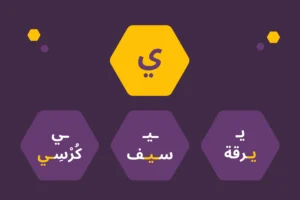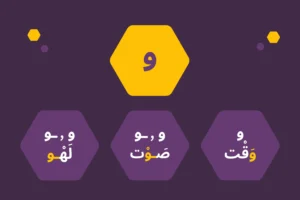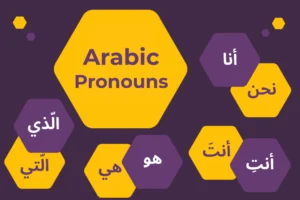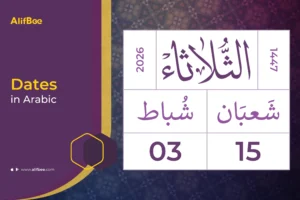For new learners of Arabic, knowing how to express your appreciation for help and kind gestures is essential.
In this article, we will learn how to express gratitude in Arabic and thank someone. The phrases we have chosen are part of classical Arabic or Modern Standard Arabic, which means they are easily understood across Arabic-speaking countries.
We will also explore different ways to reply to words of thanks and respond politely.
Common Ways to Say Thank You in Arabic
Shukran laka
شُكْرًا لَكَ
This phrase is universally used in Arabic and is suitable for both formal and informal settings. You can also use “Shukran” on its own as an equivalent to simply saying “Thanks”.
The second word in this phrase لكَ (laka – you) has to change depending on the object of gratitude and thanks. If you are addressing a woman, for instance, you say شكرًا لكِ (Shukran Laki).
Shukran Jazeelan
شُكْرًا جَزِيلاً
Translating into “Thank you very much”, this Arabic phrase indicates a deeper level of gratitude or thanks. The word جزيل in Arabic means “a lot”. Using the same word, you can also say: أشْكُرُكِ جَزيلَ الشُّكْرِ (Ashkuruka jazeela al-shukri – I thank you with many thanks).
Jazakallahu Khairan
جَزَاكَ اللهُ خَيْرًا
This phrase is rich in its religious connotation. It translates as “May Allah reward you with goodness”. It is widely used in Muslim cultures as a show of gratitude.
Even though it does not have words of thanks in it, it is seen as a form of returning favors by asking God to reward the good deed someone has done for you. And this is one of the highest forms of giving thanks and showing gratitude.
Barakallahu Feeka
بَارَكَ اللهُ فِيكَ
This phrase, while not a direct translation of “Thank you”, is also a meaningful way of showing thanks in Arabic by saying “May Allah bless you”. You might also want to change the last word in the phrase as you change the person you are addressing. So, talking to a woman, you would say بارك الله فيكِ (Barakallahu feeki).
Laka Khaalis Ash-shukr
لكَ خَالِصُ الشُّكْرِ
The English equivalent of “You have my sincere thanks”, this Arabic phrase is formal and respectful, emphasizing a more personal show of gratitude.
Ashkuruka min A’maq Qalbi
أَشْكُرُكَ مِنْ أَعْمَاقِ قَلْبِي
This phrase can be translated to “I thank you from the bottom of my heart”, and it is ideal for expressing deep and heartfelt thanks in Arabic.
Haza Lutfun Minnak
هَذَا لُطْفٌ مِنْكَ
Ideal for times when someone has done you a favor, this phrase translates as “This is kindness from you” or “That’s nice of you” – an elegant way of saying “Thank you”.
Ana Mumtanan Laka lilghayah
أَنَا مُمْتَــنٌّ لَكَ للغَايَةِ
Perfect for instances when you want to express profound gratitude, this phrase means “I am extremely grateful to you”. The adjective ممتنّ comes from the noun امتنان “gratefulness”. A female speaker would use the feminine version of the adjectives which is ممتنّة.
How to Say Thank you in Arabic
So let’s review what we learned together.
In Arabic, we can give thanks with any of the following phrases:
- Shukran (شُكْرًا): A universal term meaning ‘Thank you’.
- Shukran Jazeelan (شُكْرًا جَزِيلًا): Translates to ‘Thank you very much’.
- Jazakallahu Khairan (جَزَاكَ اللهُ خَيْرًا): Meaning ‘May Allah reward you with goodness’; commonly used in religious contexts.
- Barakallahu Feeka (بَارَكَ اللهُ فِيكَ): Means ‘May Allah bless you’.
- Laka Khaalis Ash-shukr (لَكَ خَالِصُ الشُّكْرِ): ‘You have my sincere thanks’.
- Ashkuruka min A’maq Qalbi (أَشْكُرُكَ مِنْ أَعْمَاقِ قَلْبِي): ‘I thank you from the bottom of my heart’.
- Haza Lutfun Minnak (هَذَا لُطْفٌ مِنْكَ): ‘This is kindness from you’.
- Ana Mumtanan Laka lilghayah (أَنَا مُمْتَــنٌّ لَكَ للغَايَةِ): ‘I am extremely grateful to you’.”
How to Respond to Thanks in Arabic
How To Say You are Welcome in Arabic
Now, if someone thanks you in Arabic. How do you answer them?
Here are a few Arabic phrases that work great for saying You’re welcome in Arabic:
- ‘Afwan (عَفْوًا)
- Ash-shukru Lillah (الشُّكْرُ للهِ)
- ‘Ala Al-rahbi Was-sa‘ah (علَى الرَّحْبِ والسّعَةِ)
- Haza Wajibi (هَذَا وَاجِبِي)
- La ‘Alaik (لا عَـلَيْكَ)
- Innahu min dawa’e sorori (إنه من دواعي سروري)
- Lais hunaka ay mushkila (ليس هناك أي مشكلة)
- Ahlan bika fi ay waqt (أهلاً بك في أيّ وقت)
Now let’s examine them in more detail:
Afwun
عَـفْـوًا
This word means “You’re welcome,” and it is a common way to respond to thanks in Arabic. The word عفوًا literally means (pardon me). It is like you are asking the person who is thanking you to pardon you of any thanks as they are unnecessary; you were only doing your job.
This is not the same phrase we use to say Welcome in Arabic to greet guests, which is Ahlan wa sahlan.
Ash-shukru Lillah
الشُّكْرُ للهِ
All thanks to God. Again, Arabic phrases tend to show great reference to the religious deep Islamic belief. This phrase signals the humility of the speaker and implies the meaning: “Thanks are only given to Allah”
Ala Al-rahbi Was-sa’ah
علَى الرَّحْبِ والسّعَةِ
This expression can be similar to saying “My pleasure” or “You are welcome”.
Haza Wajibi
هَذَا وَاجِبِي
This phrase means “It’s my duty”. It is part of MSA, but in dialects, you can use the reduced version, “wajbi” (my duty).
It is particularly said to people you have a duty toward, like relatives, older people, neighbours, people in need etc.
La Alaik
لا عَـلَيْكَ
This expression is close to the English phrase “Never mind” or “Don’t mention it”. It is formal and classical, often heard in fusha, not in everyday dialects.
Innahu min dawa’e sorori
إنه من دواعي سروري
This phrase means “It is my pleasure”. It is also formal and could be heard in classical scenarios.
lais hunaka ay mushkila
ليس هناك أي مشكلة
This phrase means “There is no problem,” which is the literal translation of the Arabic phrase.
Ahlan bika fi ay wakt
أهلاً بك في أيّ وقت
This phrase offers a nice response to words of gratitude and it means “You are welcome anytime.”
Final Word
Expressing your gratitude in Arabic through beautiful words of thanks in Arabic isn’t just about knowing the right words, but about the sincerity behind them.
We have learned 8 ways to say thank you in Arabic and 8 ways to respond to the question and say welcome in Arabic (as a response to thanks.
The key is to choose the right expression for the moment and the person you’re speaking to. And the more you practice, the more natural it will feel!
Now, it’s our turn to say thank you—نشكُرُكُمْ مِنْ أَعْماقِ قُلُوبِنا (Nashkurukum min A‘maqi Qulubina – We thank you from the bottom of our hearts) for reading! We hope you keep exploring our blog for more useful Arabic tips.
If you enjoyed learning these phrases, keep going! Explore more everyday Arabic expressions with AlifBee’s 14-day free trial.








